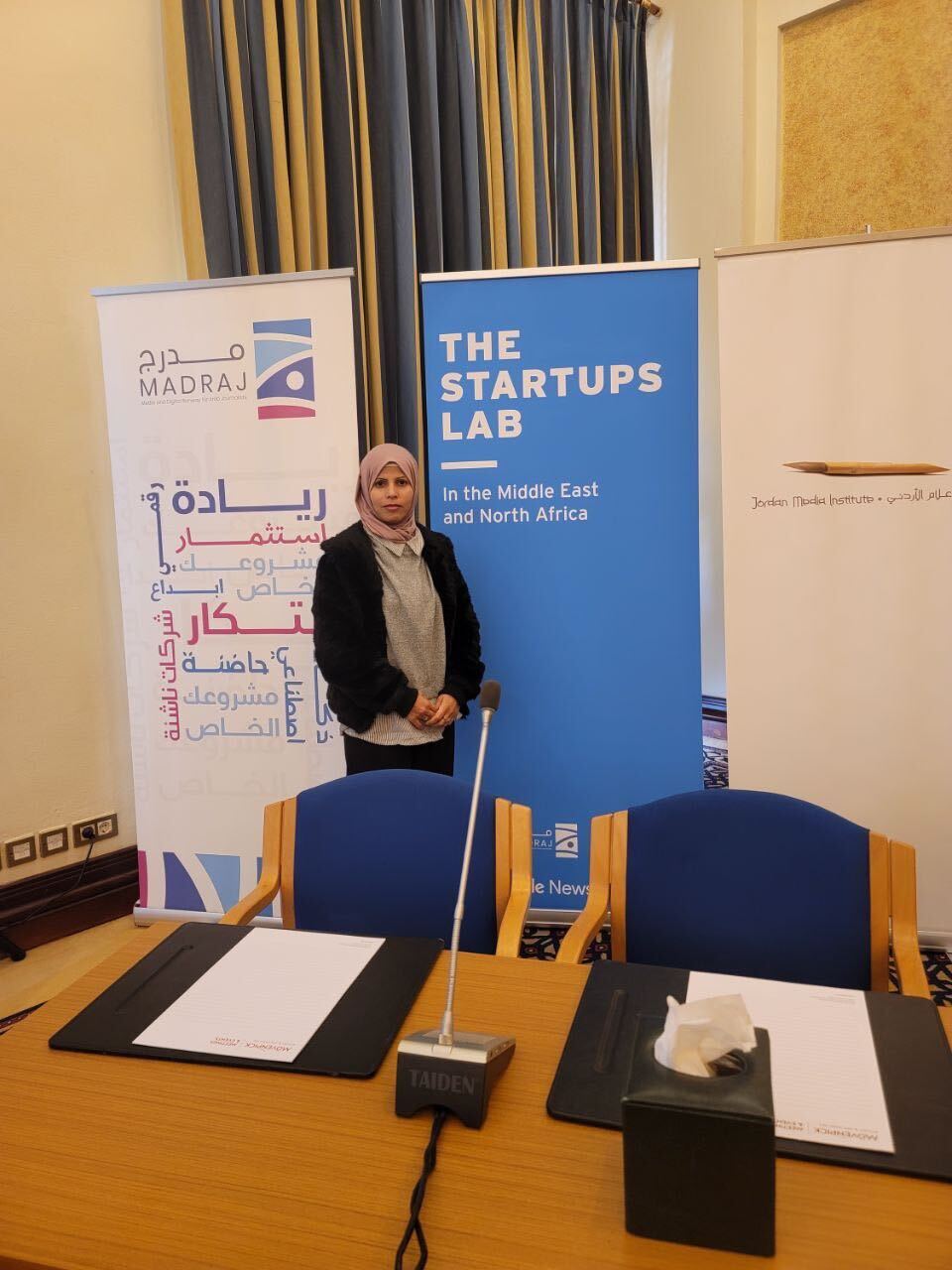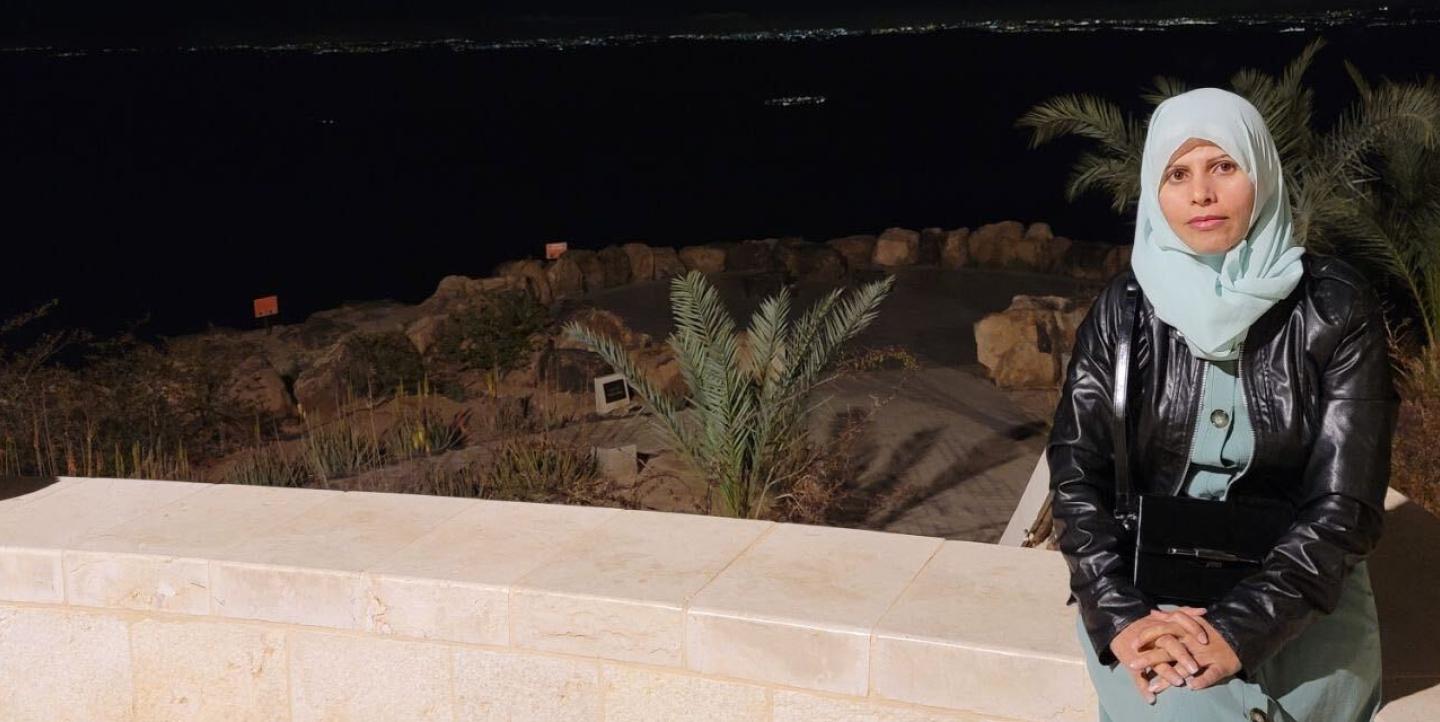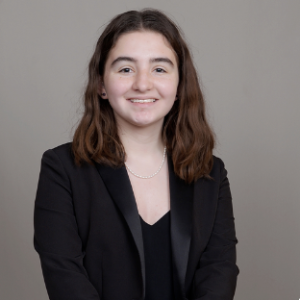Yemeni journalist Huda Harbi has dedicated her career to fighting for the rights of women and women journalists in her country. She has done so against the backdrop of the country’s ongoing civil war, an exceptionally dangerous climate for journalists.
A career in journalism is challenging for women journalists, especially in the Middle East. In a traditionally male-dominated field, with men holding around two-thirds of reporting jobs, women often struggle just to get their foot in the door. Women journalists also must navigate heightened threats to their safety, both online and in person.
Despite the risks, a new generation of Arab women journalists has persevered against the odds to not only report on their communities but also uplift the voices of their fellow women colleagues. Harbi is among them, in 2019 co-founding with a group of female journalists Neswan Voice, a platform dedicated to amplifying the voices of women in Yemen.
“It focuses on breaking the taboos of predetermined roles for women, which proves that women do not lack intelligence, nor do they lack motivation to make achievements, just like men,” she said.
I asked Harbi about how she got her start as a reporter, what challenges women journalists face in Yemen and the role of Neswan Voice in highlighting the perspectives of women in the country. Here's what she had to say:
How did you start your career in journalism?
I started my career in journalism during my second year at university, after getting an opportunity to work at a private local online radio station [FM Shabab], which was the first local youth community radio station [In Yemen]. I presented a program that focused on youth issues, and I tried to convey the voice of youth to the authorities.
In my radio work, I had many tasks and positions among the departments. I was driven by passion, and my abilities gave my managers confidence in me. I was promoted in my radio work from a broadcaster to a radio drama writer, sound engineer, and director. I later became the director of [FM Shabab], the first Yemeni woman to hold this position.
At the end of 2016, Yemen was struggling from the war and its impact on society, most notably on journalists. At that time, I had to leave radio work permanently, fearing for myself, my family, and all those around me. The country was in a state of war, there was security chaos, and no one could protect me.

What is it like being a woman journalist in Yemen? What specific challenges have you faced?
Being a journalist and living in a high-conflict environment like Yemen, you expect the fate of your life to be imprisonment, murder or exile. Our lives are full of fear and anxiety. The problem is not that a journalist is imprisoned on charges of journalistic work, but rather that the accusation is turned into a case of defamation [against the journalist].
Not only [does this affect] the reputation of the family and the tribe to which [the journalist] belongs, but the journalist may also be killed. The incident could go unsolved, and no one is held accountable.
How has IJNet helped your career?
I was among the lucky journalists who participated in the International Journalists Network’s Mentoring Center for MENA startups in 2021-2022. I benefited a lot from this opportunity and learned about media development, sustainability strategies and content development.
I launched Neswan Voice with a group of women journalists in Yemen in 2019, which aims to amplify the voices of women in Yemen. I continue applying the skills and knowledge I got from IJNet in my daily work.
What issues facing women journalists in Yemen have you become familiar with through your work at Neswan Voice?
Yemeni women journalists face many difficulties in their work, the most prominent of which are violence and threats from conflicting parties or armed groups. This puts [women journalists] in great danger and prevents them from carrying out their work effectively. Female journalists are being robbed, killed and kidnapped. Yemeni women journalists face many restrictions in their work, as freedom of the press is restricted by the authorities or extremist groups.
It is difficult for Yemeni women journalists to enter some troubled areas in Yemen to cover events, as they face difficulties in obtaining the necessary permits. Access to transportation and transportation in Yemen is a big problem, especially for female journalists who need to move between cities and regions. In addition, Yemeni women journalists face other challenges that include the lack of necessary equipment and difficulties in editing and publishing media materials at all times.
How is Neswan Voice amplifying women’s voices?
The platform highlights the role of women and concepts related to their rights to education, social and political participation, occupying public positions, choosing a husband, motherhood and others.
It uses various journalistic formats, including reports, positive stories, motion graphics, video, infographics, cartoons and podcasts. This diversity in producing content helps us reach the largest segment of the target audience.
This interview was conducted originally in Arabic and translated to English by Sarah Abdullah. It was edited for clarity.
Images courtesy of Huda Harbi.


